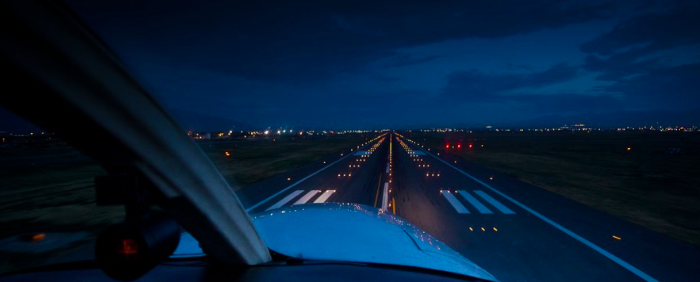
Stick your head to the porthole and gaze at the sparkling islets of the cities through golden clouds. What could be more pleasant and innocent than to rejoice in the magical vision offered by the Earth seen from the air, thanks to a sunset? According to a study conducted by researchers at the University of Reading , England, when it comes to global warming, night flying is much less innocent …
The impact of the contrails on the atmosphere
Aircraft contrails are known to contribute to global warming, as they trap infrared rays emitted from the Earth’s surface . On the other hand, during the day, they block part of the solar radiation and thus have the opposite effect.
In order to better understand and quantify the contributions of these two phenomena, the team led by Nicola Stuber of the University of Reading , England, recorded the traffic of aircraft entering the North Atlantic air corridor from the south. East of England, as well as temperatures in this area, then implanted these data into a model to study the interactions of solar and infrared radiation with the atmosphere .
A significant difference between day and night
The results published today in the journal Nature are edifying. First, the researchers verified that in winter, a season in which weather conditions favor the formation of trails, the contribution of the latter to warming is much greater than in other seasons . Thus, if the airway aircraft between December and February represent only 22% of the total circulation of a year, they account for half of the phenomenon of warming induced by the annual traffic!
But the difference between day and night remains the most astonishing observation. The flights between 18h and 6am represent only 25% of the traffic, but they are responsible for 80% of the warming caused by the wake of planes!
The share of commercial aviation in global warming taken as a whole remains modest – about 5%, but traffic is growing at 4% per year. Researchers hope, through this study, to encourage administrations to modify the management of flights, and thus limit the impact of aircraft on the atmosphere.